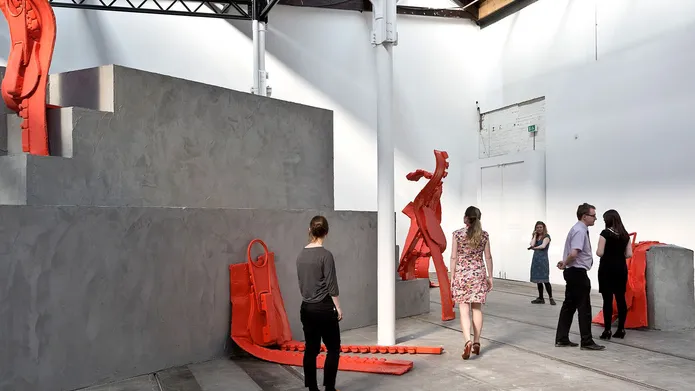Research project
Pyramid Selling
This work develops Mick Peter’s evolving research interest in the rhetorical, self-reflexive potential of making an exhibition which is apparently about making an exhibition, by showing exhibition-making as something that can reflect on how sculptural form is understood in mainstream visual culture.

Tramway Exhibition
Completed
April 2015
March 2016
Pyramid Selling was an installation work, commissioned by Tramway, Glasgow (23 April - 14 June 2015) touring to Drawing Room, London (17 January - 13 March 2016).
An immersive installation in which Peter situated the viewer into the anarchic space of drawing, with its boundless possibilities of scale and form, the visitor experience was akin to walking directly into an illustrations: a world populated by an array of life-size absurdist characters, recalling historical editorial illustration and cartoons, incongruously surrounded by monstrously large red zips, which reference the upscaling impulse of public art.
The characters were placed to interact with large grey plain sculptural elements, which acted to define routes and viewpoints for the audience.
The work develops Peter’s evolving research interest in the rhetorical, self-reflexive potential of making an exhibition which is apparently about making an exhibition, by showing exhibition-making as something that can reflect on how sculptural form is understood in mainstream visual culture.
An iteration of Pyramid Selling inaugurated the new space for Drawing Room, London. This included an in-conversation event with Tom Morton (curator and associate editor Frieze) and a reading group led by independent curator Isobel Harbison.
The work received additional support from Creative Scotland and Henry Moore Foundation. It appeared in The Guardian guide twice (25 April 2015 and 15 January 2016) and received a five-star review in
The Scotsman, also featuring in an interview with Peter on BBC Radio Scotland’s Culture Studio (28 April 2015).